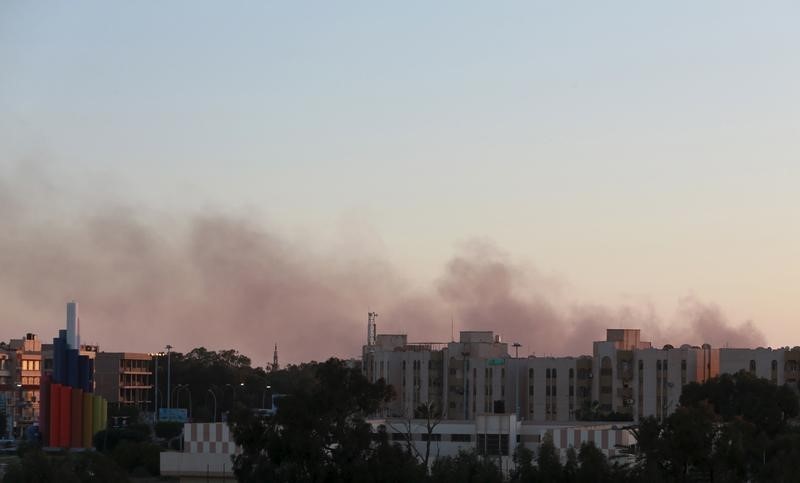By Aidan Lewis
TUNIS (Reuters) - Acute shortages of medicines, equipment and staff are putting patients at risk in Libya's battle-scarred eastern city of Benghazi, the health minister said on Friday.
Reida El Oakley said there was no money in Libya's health budget for 2016 and urged world powers to release funds frozen abroad, saying a fraction of that money could finance medical care "for years to come".
Five years after the uprising that toppled Muammar Gaddafi Libya is struggling with political chaos and conflict, as an internationally recognised government based in the east vies for power with a rival administration in Tripoli.
Benghazi, Libya's second city, has seen frequent street battles since military forces began a campaign against Islamist militants and other armed groups in 2014.
Oakley said there was an urgent need for mobile clinics and trauma kits, as well as basic equipment such as gloves and gauze.
A shortage of blood bags meant people trying to give blood had not been able to, he told journalists in Tunis. "This is how bad the situation is."
Many foreign medical staff left more than a year ago, and there was a "desperate need for doctors and nurses," he said. The city has fewer than 700 hospital beds, compared with 3,000 at the start of 2014.
Libya's health budget would normally be about $1 billion, but less than $500 million could cover essential medical needs this year if used prudently, Oakley said.
He said the international community had been waiting for the long-delayed approval of a U.N.-backed unity government to release frozen funds, but that this was the wrong approach and the money could be disbursed transparently through the U.N. World Health Organization (WHO).
"The patients are the ones who are paying the price," he said.

WHO representative Syed Jaffer Hussain said a U.N. appeal for $50 million for basic and emergency healthcare this year had generated pledges of just $2 million.